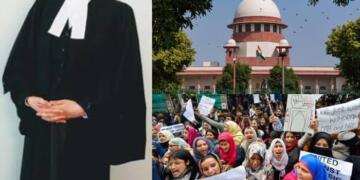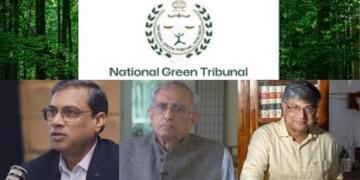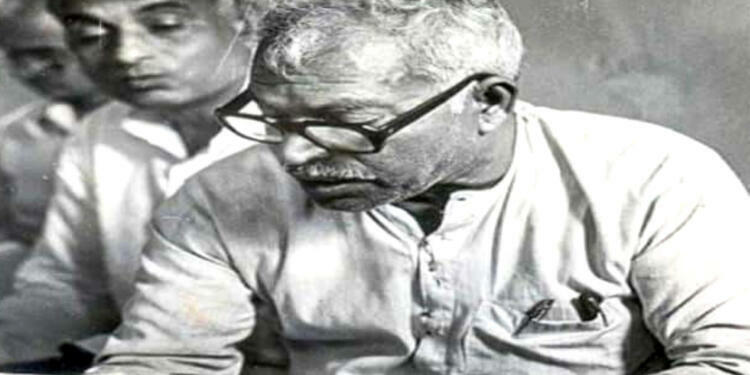Karpoori Thakur- the man till now, enjoys a high stature in the political corridors of Bihar. He is remembered as the ‘messiah’ of the poor. The political class has been demanding that he be honoured with a Bharat Ratna award. It is his death anniversary today. Therefore, it becomes necessary that a proper assessment of Karpoori Thakur’s life and political journey be done. Only then will we be able to understand who Karpoori Thakur really was.
Born in the village of Pitonjhiya (known today as Karpoorigram) in the Samastipur district, Karpoori Thakur belonged to the barber community. During his youth, he joined the All-India Students Union and then also joined the Quit India Movement. In the year 1952, Thakur was elected MLA from the Socialist Party from Tajpur Assembly Constituency and then the adulteration in his public life started from here.
The man is portrayed as a socialist politician who is regarded as the father of caste politics in India, especially OBC politics. However, the man is a false God who India worshipped for far too long.
Karpoori Thakur – the stalwart of reservation politics
Karpoori Thakur was the ideological guru of Lalu Yadav, Nitish Kumar, Ram Vilas Paswan and many other socialist leaders. He was one of the only two Chief Ministers who became the stalwarts of reservation politics in the country. Karpoori Thakur, who was the CM of Bihar for around 6 months in the early 70s, had set up Mungerilal Commission to analyse the need for the reservation to backward castes.
Read more: JP Aandolan – The best and the worst thing that happened to Bihar
Although he could not implement the commission report due to his short tenure, it set the trend for radical socialism and caste politics in Bihar. Later the state became the centre point of what is known as the ‘Bihar movement,’ in which Jayprakash Narayan- a Gandhian socialist and freedom- called for “Total Revolution” or Sampoorna Kranti.
The Total Revolution led to the imposition of emergency, and later the ouster of Indira Gandhi government at the centre as well as in the state in 1977.
Familism and casteism encouraged
Karpoori Thakur encouraged casteism in Bihar politics. Making a social equation of poverty and caste, he exploited this political idea to the fullest. Karpoori Thakur divided the society into exploited and exploited classes by linking caste with poverty. Due to this social animosity increased and it is still prevalent in Bihar to date. His policy towards reservation added fuel to the fire. Thakur served as the President of the United Socialist Party.
Karpoori Thakur- the man who encouraged the poverty
He never worked extensively for poverty alleviation. On the contrary, he used poverty as an opportunity to encash votes. It is only because of him that Bihar could not witness urbanization and capitalism.
He had once stated, “It was not an election but a battle between the rich and the poor, the weak and the strong. We represented the poor and the weak and the Congress (I), the strong and the rich. The Harijans were 100 per cent with me and we should have won by a margin of at least 2 lakh votes. But they were prevented by the Congress (I) from voting. Tarkeshwari Sinha says that I personally captured a booth and stuffed votes into the boxes. If I can go about doing this sort of thing undeterred, can public life survive? God save this country.”
In a nutshell, Karpoori Thakur can be defined as a man who introduced reservation and used poor and poverty for his selfish reasons. Thus, it is safe to say that he is a false god whom people should stop worshipping as he does not deserve the same.

























